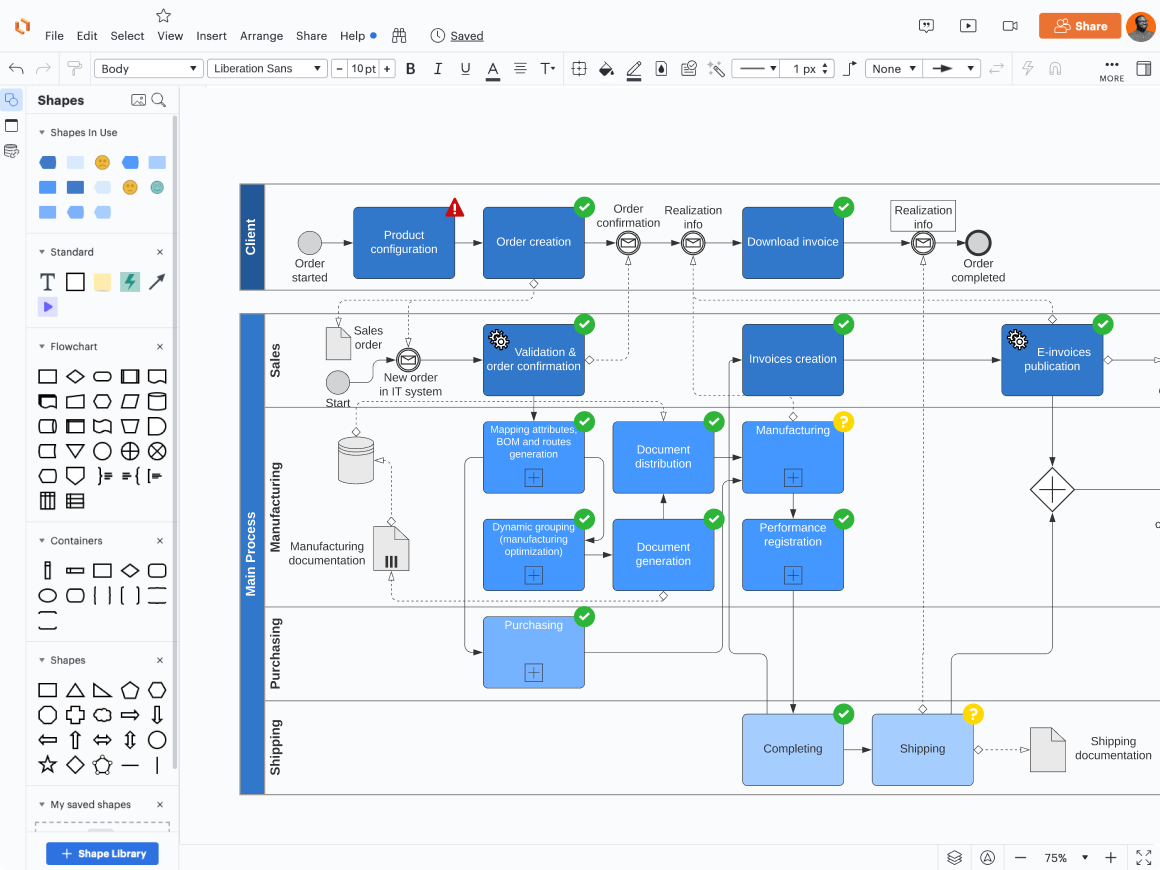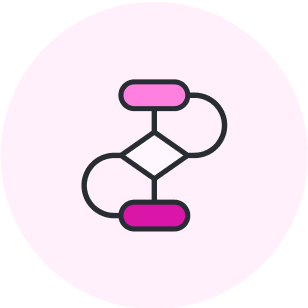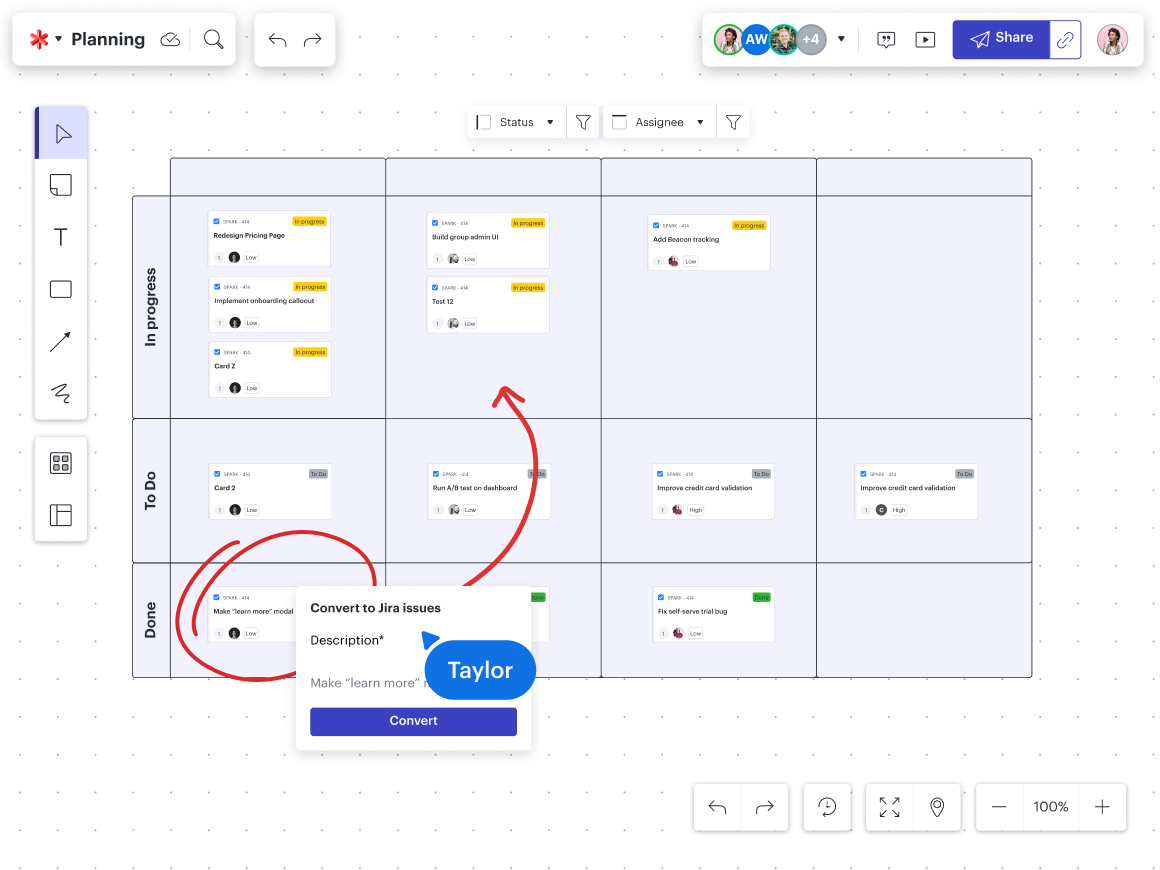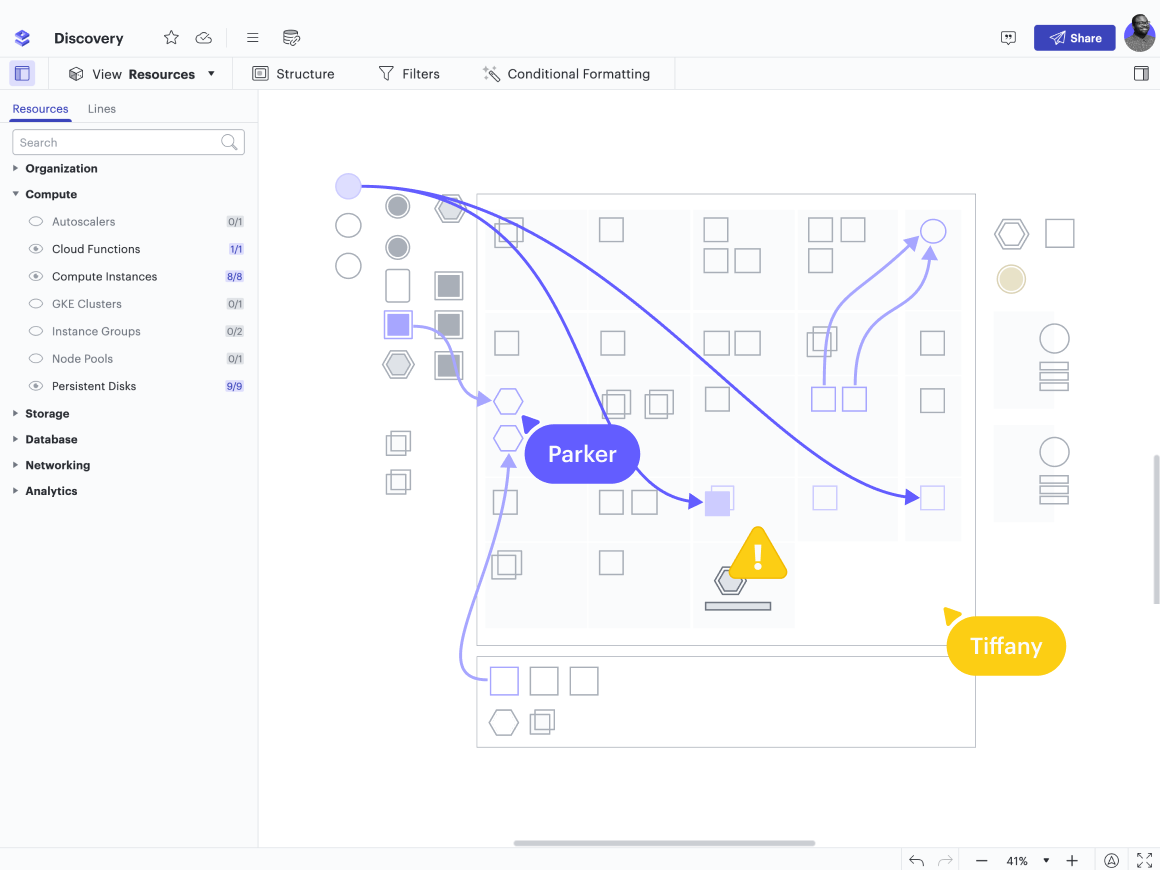
Improving operational efficiency in the public sector with Lucid
Reading time: about 6 min
The public sector faces mounting pressure to achieve major initiatives quickly—from modernizing legacy systems and accelerating digital transformation to improving systemic agility in response to national and global emergencies (like COVID-19 and climate change).
Meeting these goals will require not only significant effort but also efficiency. Simply put, public sector organizations can’t afford to waste time on inefficient processes, manual documentation, or misalignment.
To truly improve mission delivery, the public sector needs a better way to work together. Keep reading—or watch the webinar recording below—to uncover how the public sector can improve efficiency by collaborating with Lucid.
Key challenges to improving efficiency in the public sector
Government agencies and contractors face many challenges in improving efficiency. For one, delivering on mission-critical objectives involves the work of multiple teams and departments. But many teams find it difficult to collaborate—especially across hybrid teams that aren’t always on synchronized schedules or work tools.
These silos also make it difficult to align on decisions with so many stakeholders involved. And with information scattered across multiple tools and platforms, documentation becomes hard to find and time-consuming to create. Without a single source of truth, teams have no easy way to reference or visualize data to quickly spot inefficiencies and opportunities or draw key insights.
As a result, public sector teams often struggle to streamline their work and collaborate efficiently, leading to costly delays, poorer outcomes, and frustration for both employees and customers.

The public sector's documentation toolkit
Get hand-selected templates to document everything from your mission statement to processes, plans, and systems.
Get the toolkit3 ways public sector teams can use Lucid to increase operational efficiency
The public sector needs a better way to work together. In other words, efficiency in government requires a modern approach to collaboration. With Lucid, this is possible.
Lucid combines intelligent diagramming, virtual whiteboarding, and cloud visualization into a single, secure platform to fuel collaboration and alignment across the entire project lifecycle. Additionally, Lucid is FedRAMP Authorized, so public sector teams can collaborate with complete confidence in maintaining security and compliance.
Here’s how:
1. Lucid facilitates process improvement and documentation
Inefficient processes can drastically slow a team down—but if you can’t identify where the process is getting bogged down, you’ll struggle to ever improve. Clear documentation and visualization of processes is the first step to streamlining your operations.
With Lucidchart, public sector teams can work together to visualize any kind of process, including how a system works, how data flows, or how tickets are answered. Using ready-made templates and shape libraries, teams can quickly visualize and analyze processes across operations.

Simply pull a template you want to customize or use the shape libraries to build your diagrams from scratch. You can even create custom shape libraries with shapes you create or import from other sources, giving your team full control over how your visuals look and ensuring consistency across documents and teams.
Because Lucidchart is an intelligent diagramming solution, you can overlay data or apply conditional formatting to easily identify where problems and inefficiencies are occurring. And it’s easy to store all your documentation and resources in one shared hub for easy coordination and collaboration.

2. Lucid streamlines planning and decision-making
Keeping everyone on the same page and capturing feedback from all stakeholders is no easy task—especially when some people are in the office and others are working remotely. A recent Lucid survey revealed that 45% of workers find that not all relevant parties are actually kept in the loop on projects. This misalignment impedes progress, causing frustrations and delays.
Lucid’s virtual whiteboard, Lucidspark, ensures that everyone can voice their opinion on a shared canvas, giving teams a chance to align on project goals, timelines, and responsibilities from the start.
That’s why when one federal government agency needed a solution for hybrid PI planning, Lucid was an easy yes.
Program Increment planning (PI planning) has largely transitioned to completely virtual discussion—with over 100 people in large Federal contracts. This condition meant the agency needed a tool that could replicate the real-time brainstorming and collaboration that used to happen on sticky notes and whiteboards in large, conference-style meeting rooms. But moving to a virtual whiteboard is only half the battle. The team needed a solution with robust integrations with Jira and the flexibility to support a variety of use cases, from retrospectives to planning and documentation.
Lucid checked all the boxes and became the platform of choice for Ventera Corporation, an IT consulting firm supporting the federal government agency. With a focus on Agile digital transformation for the Federal government, Ventera chose Lucid to help build collaborative solutions for the agency within one robust platform.
Lucid is intuitive and easy to use without sacrificing rich features, key integrations, and dynamic usability for a variety of project needs.
“The time difference using the Jira integration with Lucid in place of manual creation is probably 95% faster.”
—Agile contractor for the federal agency
Lucid helps public sector organizations like this agency:
-
Brainstorm, allowing space for everyone to contribute, react to ideas, categorize, and prioritize solutions for action.
-
Organize items in a Dynamic Table to visualize options, identify opportunities, and take action more quickly.
-
Align on decisions with Visual Activities that jumpstart your planning and help you take ideas to the next stage.
-
Streamline work by transitioning easily to and from Jira with Lucid Cards for Jira. Import Jira issues directly into Lucidspark and arrange, gather, and sort Cards on a virtual whiteboard in real time.

3. Lucid helps teams visualize cloud architecture automatically
Cloud migration and digital transformation top the priority lists for many public sector teams today. Given the complex nature of cloud architecture and the many moving parts involved in managing these systems, teams often struggle to fully document their infrastructure and processes efficiently.
Lucidscale is purpose-built to meet the unique needs and challenges facing DevOps and cloud architecture teams.
With Lucidscale, teams can automate infrastructure diagrams from AWS, Azure, and Google Cloud environments, saving significant time on both the creation and maintenance of documentation. Up-to-date documentation makes it easy to validate cloud migrations against plans, understand the current state, reach alignment, and troubleshoot issues more efficiently.
Teams can customize views and visual grouping for specific applications, such as security, to better understand processes within that framework. Conditional formatting rules allow further customization to highlight specific issues and pinpoint areas that may need more attention.
Teams can also move their visualizations into Lucidchart to use as a sandbox to diagram how the infrastructure may need to change to support new initiatives. Then, using universal canvas to transition to Lucidspark, teams can take advantage of Lucidspark’s purpose-built whiteboarding tools—including sticky notes, drawing, and Lucid Cards—to brainstorm ideas, organize and coordinate solutions, and take action faster.

Accelerate speed to mission with Lucid
The Lucid Suite offers public sector teams a robust home base for managing and improving operations at scale. In fact, 88% of Lucid customers say Lucid enables them to be more productive, and 83% say Lucid increases alignment among their hybrid teams.
With Lucid, public sector teams can:
- Modernize and consolidate their tech stacks with one central hub for brainstorming, collaboration, and documentation.
- Accelerate digital transformation by visualizing systems, processes, and citizen experiences to build alignment and develop new solutions.
- Create a single source of truth of the organization’s ideas, plans, and processes that creates alignment, minimizes redundancies, and streamlines efforts.

Kickstart collaboration and efficiency
Learn more about how Lucid helps the public sector boost collaboration and improve operational efficiency.
Get in touchAbout Lucid
Lucid Software is the leader in visual collaboration and work acceleration, helping teams see and build the future by turning ideas into reality. Its products include the Lucid Visual Collaboration Suite (Lucidchart and Lucidspark) and airfocus. The Lucid Visual Collaboration Suite, combined with powerful accelerators for business agility, cloud, and process transformation, empowers organizations to streamline work, foster alignment, and drive business transformation at scale. airfocus, an AI-powered product management and roadmapping platform, extends these capabilities by helping teams prioritize work, define product strategy, and align execution with business goals. The most used work acceleration platform by the Fortune 500, Lucid's solutions are trusted by more than 100 million users across enterprises worldwide, including Google, GE, and NBC Universal. Lucid partners with leaders such as Google, Atlassian, and Microsoft, and has received numerous awards for its products, growth, and workplace culture.
Related articles
Public sector digital transformation: 4 strategies for increasing clarity, alignment, and adaptability
Learn how to create clarity, alignment, and adaptability to accelerate digital transformation ini the public sector.
The public sector's toolkit for effortless documentation
A modern documentation process is the key to accelerating innovation for public sector teams. Learn more here.
6 operational efficiency examples to inspire your organization
See examples of how six companies used Lucid to enhance their operational efficiency.
How 5 public sector orgs are accelerating modernization and boosting efficiency with Lucid
Read how five public sector agencies and contractors have increased efficiency, accelerated IT modernization, and reduced costs with Lucid.
Bring your bright ideas to life.
By registering, you agree to our Terms of Service and you acknowledge that you have read and understand our Privacy Policy.